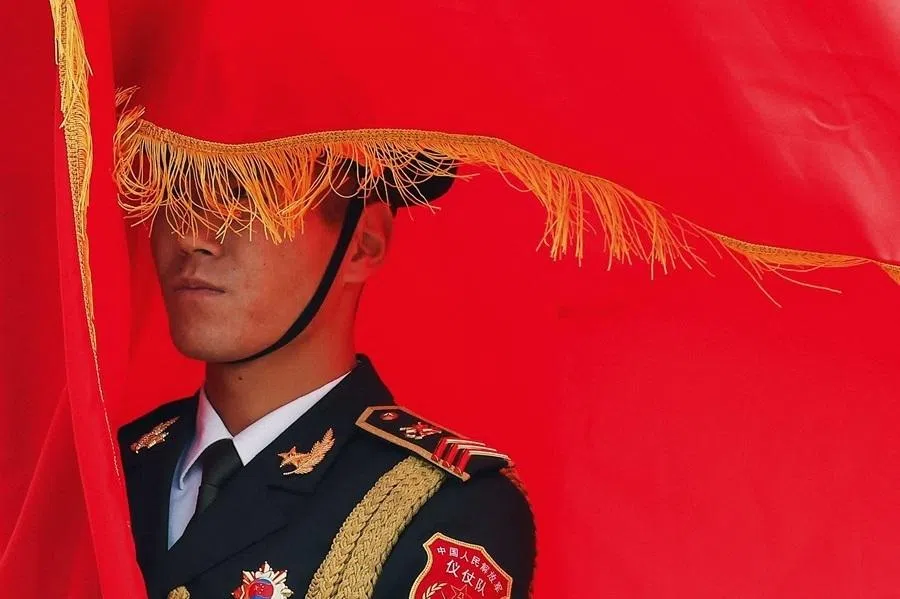Trump at ASEAN: A showcase of US–China rivalry on Malaysia’s turf
As Malaysia hosts Trump amid protests and great power rivalry, its role as ASEAN chair becomes a stress test for the region’s diplomatic neutrality and fragile unity.
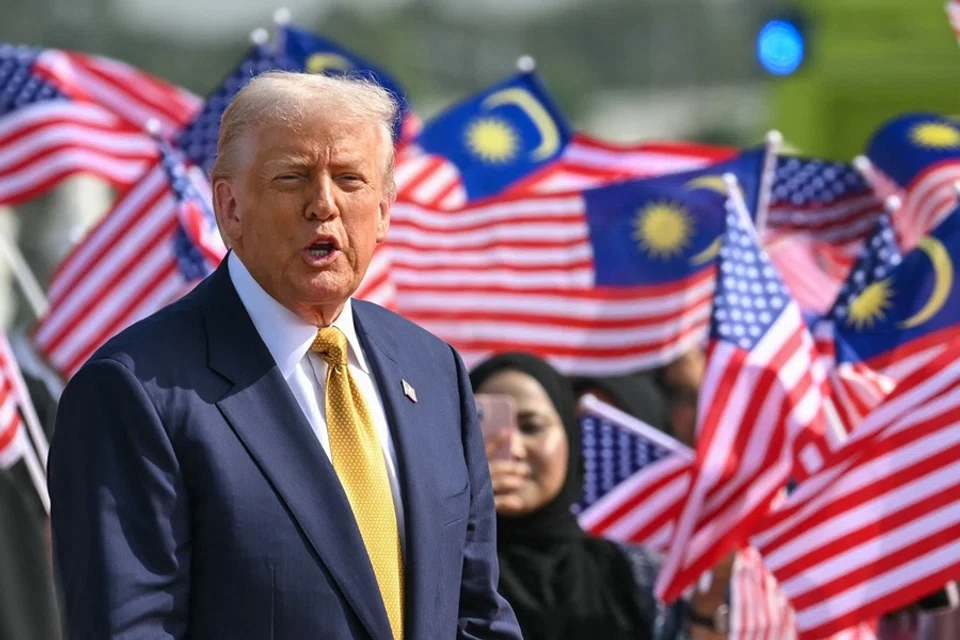
ASEAN summits are often derided as monotonous and uneventful. The 47th ASEAN Summit, scheduled from 26-28 October 2025 in Kuala Lumpur, may prove to be the exception, in large part due to the outsized persona of US President Donald Trump. The American president has made political waves even before reaching the shores of Malaysia in at least two respects.
Love and hate for Trump
In the first instance, the president’s invitation to the summit sparked controversy from segments of the Malaysian populace. Former Prime Minister Mahathir Mohamad has called on Premier Anwar Ibrahim to rescind Trump’s invitation. In a similar vein, Opposition Leader Hamzah Zainudin was unequivocal in his views on Trump: “We don’t want Trump to come. Reject Trump!” The negative view stems largely from the president’s staunch support for Israel and his disregard for the plight of the Palestinian people.
In contrast, Anwar’s invitation to Russian President Vladimir Putin has not generated much opposition despite the latter’s role in perpetuating the 2022 invasion of Ukraine and the decision of the International Civil Aviation Organisation (ICAO) that Russia was responsible for the downing of the Malaysian Airlines flight MH17 in 2014.
The business community also needs to play nice with the US due to the looming threat of reciprocal tariffs hanging over the Malaysian economy.
However, there are small pockets of support for Trump. The Malay Businessmen and Industrialists Association of Malaysia, for example, embraces a transactional approach. The association’s imperative is to pursue good relations with the US to avoid losing critical access to the American market, which stood at US$53.85 billion in 2024.
Pessimistic views on the US were similarly tempered by economic pragmatism. The US is Malaysia’s top source of foreign direct investment in 2024 (US$7.4 billion) and has a prominent presence in the electrical and electronics sector. The business community also needs to play nice with the US due to the looming threat of reciprocal tariffs hanging over the Malaysian economy.
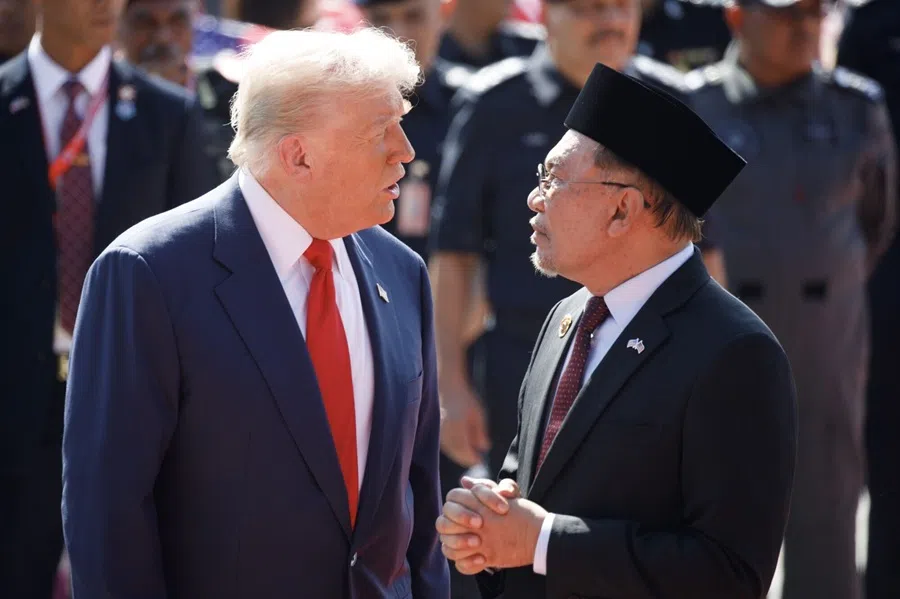
The Malaysian government, for its part, has tried to soothe domestic political tensions by explaining that invitations were extended not only to Trump but to all heads of governments of ASEAN Dialogue Partners (including Russian President Vladimir Putin, who will not be at the Summit). This was done in view of Malaysia’s capacity as the ASEAN Chair. Notwithstanding the misgivings held by some quarters to invite Trump, Malaysia has the obligation to uphold ASEAN’s practice of treating all its dialogue partners equally.
Excluding the Chinese and undermining ASEAN centrality?
In the second instance, Malaysia has to grapple with Trump’s attempt to insert himself at the centre of the Cambodia-Thailand conflict. While it is appropriate to invite Trump to the 13th ASEAN-US Summit and 20th East Asia Summit on 28 October, it is an entirely different proposition to allow the US to indulge in grandstanding at the sidelines of ASEAN’s most important series of meetings.
Speaking to the media on Tuesday, Malaysia’s Foreign Minister Mohamad Hasan Trump indicated that Trump was looking forward to witnessing the signing ceremony of the Cambodia-Thailand peace deal. White House officials have reportedly expressed their preference for Chinese officials to be excluded from the event. This has raised more than a few eyebrows.
The US’s role in bringing the disputing parties together by using tariffs as a political lever is acknowledged. Allowing Trump to claim singular credit, however, undermines ASEAN centrality.
At the onset, Thailand’s Prime Minister Anutin Charnvirakul has dismissed the need for Trump to mediate a peace deal with Cambodia and distanced himself from the president’s efforts to win a Nobel Peace Prize. Similarly, Thailand’s foreign minister Sihasak Phuangketkeow has also cautioned that the proposed Kuala Lumpur Accord would not have any credibility if its implementation procedures are not “spot-on, practical, and reciprocal”. In addition, he noted that “every step (of the peace deal) should be clearly defined” and underlined the importance of verification in monitoring progress. Notwithstanding these misgivings, Foreign Minister Mohamad has expressed hope that the signing of a declaration known as the Kuala Lumpur Accord between Cambodia and Thailand will proceed.
In addition, allowing Trump to “preside” over the signing ceremony would diminish ASEAN’s role in mediating the dispute. The US’s role in bringing the disputing parties together by using tariffs as a political lever is acknowledged. Allowing Trump to claim singular credit, however, undermines ASEAN centrality. This is given the fact that Malaysia, as the ASEAN Chair, did most of the heavy lifting in the mediation process.
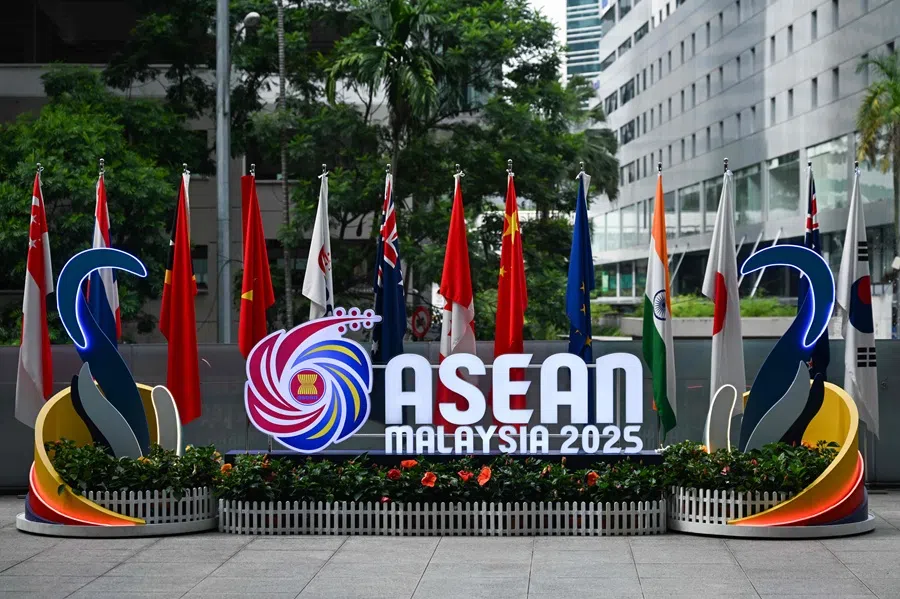
Malaysia must also tread carefully in giving Trump the top billing in the signing ceremony, as doing so would diminish China’s contributions in the July 2025 ceasefire agreement. Both the US and China played a role in the ceasefire agreement, albeit to varying degrees. Trump should not be given the privilege of “presiding” over the peace deal while China is sidelined. Ideally, Malaysia should invite China to participate in the signing ceremony in recognition of Beijing’s role in the process. This would help keep China onside in support of the implementation of the peace deal.
Peacemaker, trader, host
The bilateral dispute between Cambodia and Thailand would also have a knock-on effect on the region’s relations with the major powers, specifically the US and China. Thailand is against interference by outsiders and prefers to manage its dispute with Cambodia bilaterally. Cambodia prefers international mediation. At any rate, the dispute has effectively become a stage for a diplomatic contest between China and the US. The US request to exclude China from the signing ceremony is one element of this sparring between the major powers.
The feather in the cap for Malaysia’s ASEAN Chairmanship is, of course, the admission of Timor-Leste as the 11th ASEAN Member State.
In the coming days, Malaysia will have its work cut out as it winds down its chairmanship duties. It will have to balance domestic opposition and protests to Trump’s visit while rolling out the red carpet to welcome the US president. Although the signing ceremony of the Cambodia-Thailand peace agreement is only one activity at the sidelines of the 47th ASEAN Summit, Trump’s grandstanding sets a precedent for future requests by external partners.
Beyond playing the role of peacemaker in facilitating the Kuala Lumpur Accord, Malaysia is set to leverage Trump’s visit to the Malaysian capital to finalise a trade deal with the US. Anwar is optimistic that the trade deal will be inked in the coming days, sharing that 99.9% of the agreement is resolved. The feather in the cap for Malaysia’s ASEAN Chairmanship is, of course, the admission of Timor-Leste as the 11th ASEAN Member State.
This article was first published in Fulcrum, ISEAS – Yusof Ishak Institute’s blogsite.
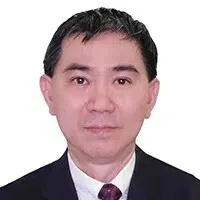


![[Big read] When the Arctic opens, what happens to Singapore?](https://cassette.sphdigital.com.sg/image/thinkchina/da65edebca34645c711c55e83e9877109b3c53847ebb1305573974651df1d13a)

